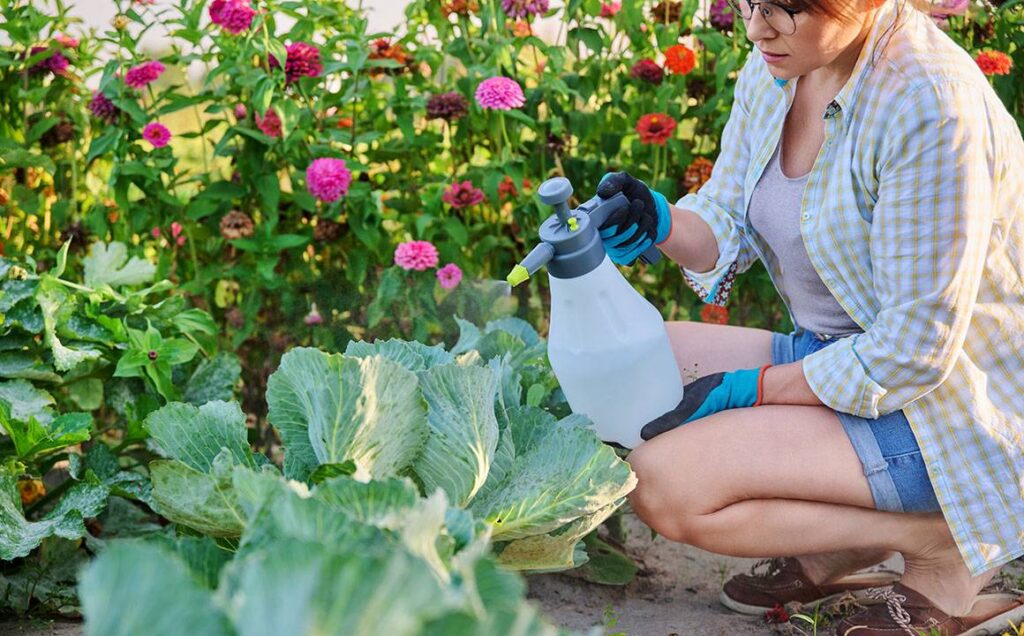When it comes to landscaping, maintaining a lush, vibrant garden requires not only a green thumb but also effective pest control. Whether you’re cultivating delicate flowers or nourishing fruit-bearing plants, pests can wreak havoc on your landscape. In Randolph, NJ, many homeowners rely on professional pest control Randolph NJ services to keep their gardens thriving. This type of pest management ensures that unwanted invaders—like aphids, rodents, and termites—are kept at bay, preventing potential damage. Explore various pest control methods, the importance of garden upkeep, and ways to establish a pest-resistant garden.
Pest Control Methods for Garden Plants and Flowers
Effective pest control for garden plants and flowers is crucial to protect them from damaging invaders that can stunt growth or destroy foliage.
1. Integrated Pest Management (IPM)
IPM combines different pest control techniques to manage pests in a sustainable way. It includes biological controls, such as introducing predators like ladybugs, and cultural practices, such as rotating crops. This approach minimizes chemical pesticide use and protects the environment while keeping pests under control.
2. Physical Barriers and Traps
Installing physical barriers like row covers or garden nets can prevent pests such as moths, beetles, and birds from damaging plants. Traps, such as sticky boards or pheromone traps, also attract and capture pests like flies and mosquitoes, preventing them from causing harm to the garden.
3. Chemical Controls (when necessary)
When pest infestations become severe, chemical pesticides may be necessary. Nevertheless, they are to be employed with caution and only in extreme cases. It’s essential to choose eco-friendly options that target specific pests without harming beneficial insects like pollinators.
Organic and Non-Toxic Pest Control Options for Landscaping
Many homeowners prefer organic and non-toxic pest control options to protect their plants while keeping the environment safe.
1. Neem Oil
Neem oil is a popular organic pesticide that disrupts pests’ feeding and reproductive cycles. Aphids, spider mites, and whiteflies are just a few of the many pests that it successfully eliminates. Neem oil is safe for both plants and beneficial insects, making it an excellent choice for eco-conscious gardeners.
2. Diatomaceous Earth
Made from fossilized algae, diatomaceous earth is a naturally occurring material. It works by dehydrating and killing pests like ants, fleas, and slugs without posing a risk to humans or pets. It’s perfect for treating the soil and garden beds around plants to keep pests away.
3. Beneficial Insects
You may achieve natural pest control by introducing beneficial insects to your yard. Ladybugs, lacewing larvae, and predatory beetles are excellent at managing aphids, mealybugs, and other plant-eating pests. These insects not only control pests but also maintain a healthy ecological balance in your garden.
The Importance of Proper Garden Maintenance to Prevent Infestations
Regular garden maintenance is essential for preventing pest infestations and ensuring your plants grow healthily.
1. Regular Pruning and Deadheading
Keeping plants trimmed and removing dead or decaying foliage helps prevent pests like aphids, caterpillars, and fungal diseases. These pests often thrive in dense, overgrown areas where they can hide, so regular pruning reduces their hiding spots.
2. Proper Watering Practices
Overwatering or underwatering can attract pests like slugs, mosquitoes, and fungus gnats. Ensuring your garden gets the right amount of water—ideally in the early morning to prevent mold growth—keeps pests at bay. Watering at the base of plants rather than overhead also helps avoid attracting pests.
3. Weeding and Mulching
Weeds can serve as hiding spots for pests, so it’s important to remove them regularly. Applying mulch also prevents the growth of weeds and conserves moisture. Additionally, mulch can keep pests like slugs and snails from reaching the base of plants and causing damage.
Pest-Resistant Plants and Strategies for Healthy Garden Ecosystems
Creating a garden ecosystem that naturally repels pests is an effective and sustainable way to reduce pest problems.
1. Choosing Pest-Resistant Plant Varieties
Some plants are naturally resistant to pests, making them an ideal choice for a low-maintenance, pest-free garden. Varieties like marigolds, lavender, and rosemary can deter insects like aphids and mosquitoes due to their strong scents and natural oils. Incorporating these plants into your garden can help reduce the need for chemical pest control.
2. Companion Planting
Companion planting involves pairing plants that naturally repel pests or attract beneficial insects. For example, planting basil near tomatoes can deter aphids, while planting garlic around roses can help prevent fungal infections. This strategy promotes a healthy garden ecosystem and reduces the reliance on pesticides.
3. Encouraging Biodiversity
A diverse garden with a mix of plants, flowers, and herbs attracts beneficial insects that keep pest populations under control. Bees, butterflies, and other pollinators contribute to a healthy garden, while birds, frogs, and other natural predators help reduce pest populations. By promoting biodiversity, gardeners can naturally manage pests and create a thriving ecosystem.
Conclusion
Incorporating effective pest control measures into landscaping is essential for keeping gardens healthy and vibrant. Whether through integrated pest management, organic methods, or proper garden maintenance, homeowners in Randolph, NJ, can enjoy beautiful, pest-free gardens. Regular Randolph pest control services from PermaKill Exterminating also play an important role in preventing infestations and ensuring long-term garden health. By selecting pest-resistant plants, employing non-toxic solutions, and fostering a balanced garden ecosystem, homeowners can minimize the need for harmful chemicals while maintaining a thriving landscape.





